Armenia’s protesters just removed its Russia-friendly prime minister — and Moscow is ‘definitely nervous’
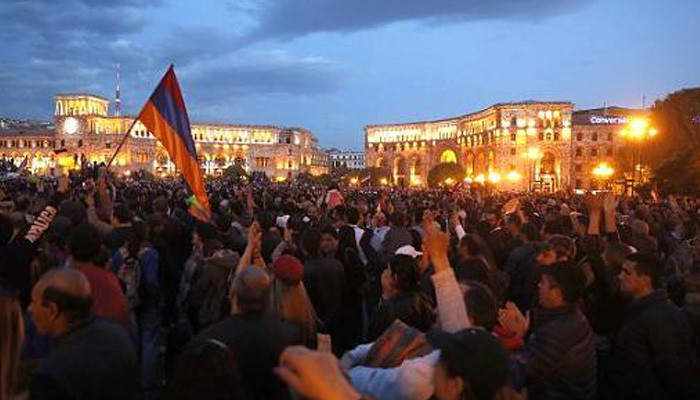 2992 Thursday, 26 April, 2018, 11:55 Armenia's prime minister stepped down Monday after nearly two weeks of anti-government protests, in a surprise victory for tens of thousands of peaceful demonstrators. The ex-Soviet republic of about 3 million, sandwiched in the mountainous Caucasus region between Europe and Asia, relies heavily on Russia, both militarily and economically. A change in government could threaten Russia's level of influence in the country — meaning the Kremlin will be watching closely as developments unfold. What happened in Armenia? Constitutional changes made under Sargsyan's government enabled a concentration of power in the hands of the prime minister. "I got it wrong," Sargsyan said in a statement following the release of Pashinyan, who had been arrested, and nearly 200 detained protesters, most of whom were young people and students. "I am quitting the country's leadership and the post of prime minister of Armenia." Former Armenian PM Karen Karapetyan, an ally of the ousted leader, has assumed the position for the time being, and the parliament must put forward the name of a new prime minister within seven days. Sargsyan's allies remain in the government, but the opposition parties are likely to push for greater recognition of the protest movement. This may be a challenge considering they form a tiny minority in parliament — Pashinyan's opposition coalition, the "Way Out", has just nine seats out of 105 in the Armenian National Assembly. "Moscow is definitely nervous, and watching how this plays out with great interest as it sees Armenia as its backyard and within its strategic umbrella," said Timothy Ash, senior emerging markets strategist at Bluebay Asset Management. "Putin also despises so-called colored revolutions where grassroots, people power, grasp power from established authorities." Armenia is a member of the Moscow-led Eurasian Union, a sort of counter to the European Union (EU), which it joined at the expense of potential memberships in EU partnership projects. It benefits from cheap financing, energy and investment from Russia, and has 5,000 Russian troops defending its borders. It also relies on Russia as a strategic ally in its long-standing ethnic and territorial dispute with neighbor Azerbaijan over the district of Nagorno Karabakh, which has been the scene of numerous firefights, mortar and tank warfare, with around 200 soldiers and civilians killed since 2008. While the current acting prime minister is trusted by Moscow, "I think they would be nervous at any scenario which saw the current administration ousted and a completely new government created, e.g. around Pashinyan, whom I don't think they trust," Ash said. |
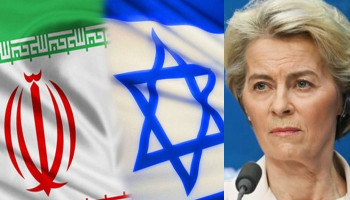
The EU reacted to the attack on Iran attributed to Israel
36213:06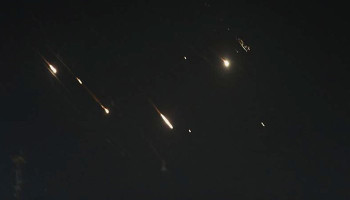
#ABC: Israel attacks Iran, sources say, drones reported over Isfahan (video)
39509:24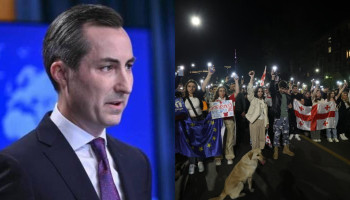
US slams Georgia’s ‘Kremlin-inspired’ foreign agent bill
417Yesterday, 23:00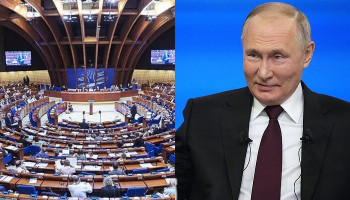
PACE: Putin illegitimate, Russian Orthodox Church propaganda instrument
470Yesterday, 18:00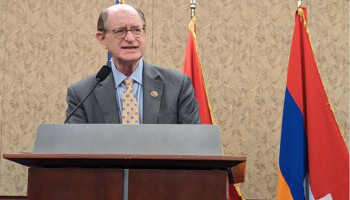
Brad Sherman: "True justice is when those people can return to their ancestral homes"
353Yesterday, 13:00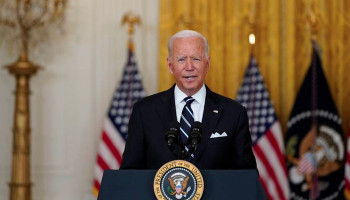
Biden urges Congress to end impasse and send aid to Israel and Ukraine
506Yesterday, 09:54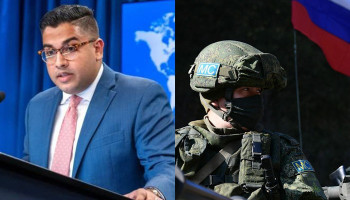
US State Department about withdrawal of the Russian peacekeeping contingent from Nagorno-Karabakh
371Yesterday, 09:48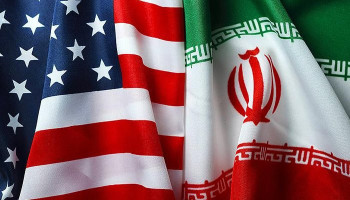
US to impose new sanctions against Iran after its air attack on Israel
62317.04.2024, 09:48
